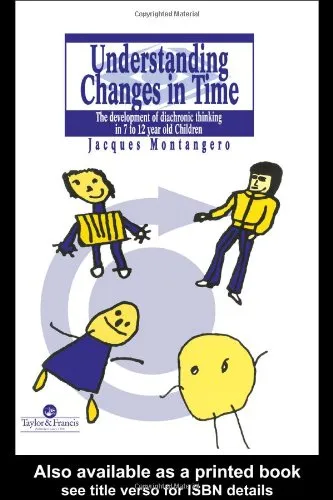Understanding Changes In Time: The Development Of Diachronic Thinking In 7-12 Year Old Children
4.5
Reviews from our users

You Can Ask your questions from this book's AI after Login
Each download or ask from book AI costs 2 points. To earn more free points, please visit the Points Guide Page and complete some valuable actions.Related Refrences:
Introduction
Welcome to a journey through the cognitive development stages of young minds, specifically focusing on how children between the ages of 7 and 12 understand and interpret changes over time. In 'Understanding Changes In Time: The Development Of Diachronic Thinking In 7-12 Year Old Children', we explore the intricate processes by which children develop the ability to think diachronically, or in other words, how they comprehend the sequences of past, present, and future events.
Detailed Summary of the Book
The development of diachronic thinking in children is a fascinating subject that combines aspects of psychology, pedagogy, and cognitive science. This book delves into the nuanced processes that children undergo as they begin to grasp chronological concepts. From understanding basic timelines to appreciating historical contexts, children in this age group transition from simple narrations of events to sophisticated temporal reasoning.
Through a series of empirical studies and observational data, the book illustrates how children’s abilities to conceptualize time evolve. It presents age-specific benchmarks and activities designed to enhance diachronic reasoning. Each chapter is anchored in solid theoretical frameworks and enriched with practical applications, empowering educators and parents to support this critical aspect of cognitive development effectively.
Key Takeaways
- Diachronic thinking is crucial for understanding history and even everyday events.
- Children develop these skills through both formal education and informal learning experiences.
- Enhancing diachronic thinking can improve children’s problem-solving skills and historical understanding.
- Encouraging reflection and discussion about past events can significantly aid in this cognitive development.
Famous Quotes from the Book
"Time not only tells all, but it also helps us understand where we've been and where we're going."
"When children learn to decode the sequences of time, they unlock a new dimension of awareness and responsibility."
Why This Book Matters
Understanding how children think about time is fundamental in fields such as education, psychology, and even history. By optimizing teaching methods to cater to the developing stages of diachronic thinking, educators can significantly enhance the learning experience for young students. This book sheds light on an often-overlooked aspect of cognitive development, providing insights that can lead to more effective educational strategies. Moreover, by grasping how children perceive changes over time, we can better prepare them to face future challenges with a comprehensive understanding of their past experiences and future possibilities.
Free Direct Download
You Can Download this book after Login
Accessing books through legal platforms and public libraries not only supports the rights of authors and publishers but also contributes to the sustainability of reading culture. Before downloading, please take a moment to consider these options.
Find this book on other platforms:
WorldCat helps you find books in libraries worldwide.
See ratings, reviews, and discussions on Goodreads.
Find and buy rare or used books on AbeBooks.



